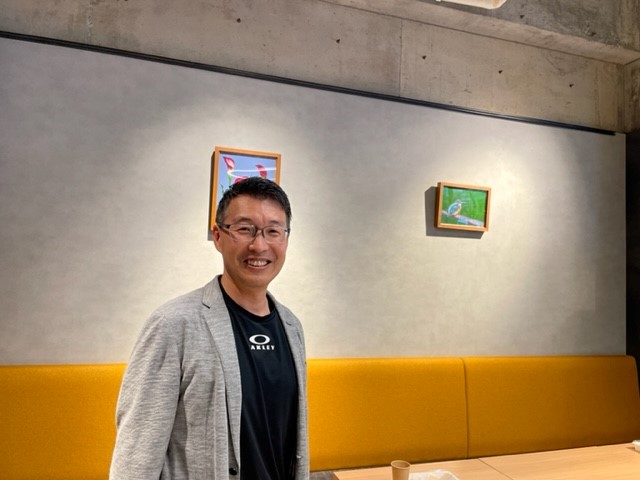Daisuke Otsuka, head of the firm’s business incubation office, says his unit is helping adapt to the car industry’s once-in-a-century transformation.
“To accelerate Toyota Boshoku’s creation of new businesses and values in this fast-changing world, it is imperative to work with external insights and technologies,” Daisuke Otsuka (pictured) told GCV in an exclusive interview.

Otsuka leads Japan-headquartered automotive component producer Toyota Boshoku’s business incubation office, which is under the corporate’s global corporate strategy department.
Toyota Boshoku’s president and chief executive officer, Masayoshi Shirayanagi, revealed last month the firm’s plans to conduct corporate venture capital (CVC) activities to electrify the car industry.
GCV: Toyota Boshoku invested in Japan-based odour visualisation technology developer Aroma Bit in May. Will future investments be made through the business incubation office or the CVC fund?
DO: Investments are not made through a fund but directly from Toyota Boshoku’s balance sheet; that said, our investment process is different in that we can make early investment decisions in the same way as a typical CVC unit.
GCV: Tell us more about your business incubation office. How much investment budget do you have? How long is your unit expected to operate?
DO: As the automotive industry is undergoing a “once-in-a-century transformation”, Toyota Boshoku is developing technologies to respond to the evolution, including connected, autonomous, shared and electric (CASE) and mobility-as-a-service (MaaS) offerings and the changing values of the car industry.
To accelerate Toyota Boshoku’s creation of new businesses and values in this fast-changing world, it is imperative to work with external insights and technologies.
In April last year, the business incubation office was set up as a separate entity. In addition to its CVC activities, the department promotes open innovation and operates innovative human resources programmes in the company in cooperation with other divisions.
The investment scale is estimated at roughly ¥1bn ($7.3m at current rates) per year, with a medium-term management plan between April 2021 and March 2026 of about ¥5bn. The investments aim to achieve both financial and strategic returns (business synergies).
GCV: How many team members do you have? Are they from the VC industry or transferred from the corporate?
DO: The business incubation office is organised under Toyota Boshoku’s corporate planning and reform headquarters, which reports directly to the president.
The team consists of nine members, including four VCs, three administrators and one technical adviser, all under my purview. We have five additional double-hat members who simultaneously serve other departments. We are building a system that can allow us to work promptly with the needs and potentials of various business units in mind.
Furthermore, we operate the CVC team with the participation of external advisers who have VC knowledge. I came from the investment banking division of a Japanese mega-bank, and we have another Japanese mega-bank alumnus as a VC investor while the others are in-house employees.
GCV: What stages do you intend to focus on? Are you planning to invest in overseas companies?
DO: We mainly target seed, early and mid-stage companies. Basically, we would like to invest in companies with a technological edge to create business synergies with our parent company. We will invest in Japan first but since we also have an office in Silicon Valley, we may consider investing in US-based startup companies eventually as well.
GCV: What new value can be created through CVC?
DO: Broadly speaking, the investment fields can be broadly divided into areas related to sustainable growth (ESG), automotive manufacturing and car interior space.
With regard to passenger compartment space, it is especially necessary to plan and develop with a view to CASE and MaaS, and we expect the group to create new value for the mobility space as an interior space creator.
For example, in May 2022, the group invested in Aroma Bit, a company that provides innovative imaging sensors that enable the visualisation of scents and odours, and an associated database.
We made that investment because we believe the sense of smell will play a crucial role in the development of future passenger compartment space.
GCV: As for the exit strategy, is there a possibility of mergers and acquisitions (M&A) with Toyota Boshoku in addition to public listings?
DO: For exits, M&A is envisaged in addition to initial public offerings. Other possibilities include a strategic partnership in the form of a continued minority shareholding.









